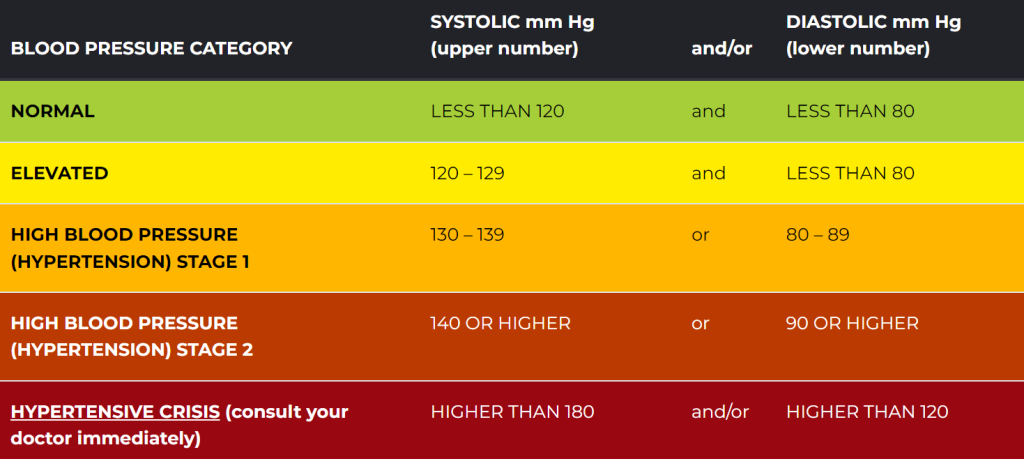Hypertension Awareness Month
High blood pressure, or hypertension, is a leading cause and controllable risk factor for stroke and heart disease. The good news – hypertension is controllable, and with proper management, you can lower your risks.
What is high blood pressure (hypertension)?
High blood pressure, or hypertension, is when your blood pressure, the force of your blood pushing against the walls of your blood vessels, is consistently too high. The higher your blood pressure levels, the more risk you have for other health problems, such as heart disease, heart attack, and stroke.
What is the cause of high blood pressure?
High blood pressure is caused by a variety of circumstances, and usually develops over time. High blood pressure can happen because of unhealthy lifestyle choices, such as not getting enough regular physical activity. Age, family history, genetics, and sex are all risk factors that cannot be changed.
What are the signs and symptoms of high blood pressure?
Most often, high blood pressure has no symptoms or warning indications, and many people are unaware they have it. The only method to determine whether you have high blood pressure is to measure it.
What do blood pressure numbers mean?
Blood pressure is measured using two numbers:
The first number, called systolic blood pressure, measures the pressure in your arteries when your heart beats. Typically, more attention is given to systolic blood pressure (the first number) as a major risk factor for cardiovascular disease for people over 50.
The second number, called diastolic blood pressure, measures the pressure in your arteries when your heart rests between beats.
According to the CDC, a normal blood pressure level is less than 120/80 mmHg. Knowing your blood pressure numbers is the first step to maintaining the health of your heart.

What can I do to prevent or manage high blood pressure?
Making lifestyle modifications can help many people with high blood pressure bring their levels into a healthy range or maintain them there.
- Get at least 150 minutes of physical activity each week (about 30 minutes a day, 5 days a week)
- Don’t smoke
- Eat a healthy diet, including limiting sodium (salt) and alcohol
- Maintain a healthy weight
- Manage stress
Schedule an appointment with your NOAH care team right away if you think you have high blood pressure or if you’ve been told you have high blood pressure but do not have it under control.

